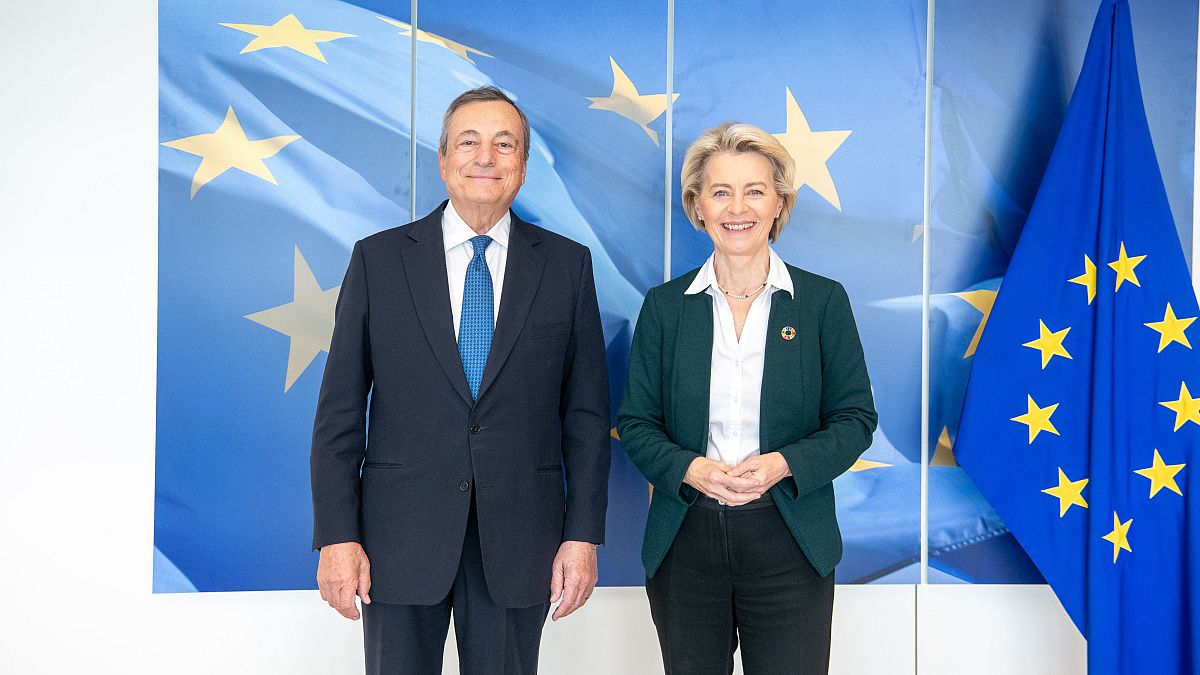Former Italian Prime Minister Mario Draghi is facing accusations from various stakeholders that his landmark report on competitiveness did not include voices from across Europe.
Professor Mario Draghi’s recently released, long-awaited report on EU competitiveness is being accused of being one-sided, as critics point to an apparent lack of diversity in its consultation process.
According to a list published by the EU Commission, Draghi’s team received 236 contributions [in writing or in meetings] from think tanks, universities, lobbyists, EU bodies, trade and business associations and some NGOs.
The list includes prestigious Brussels-based research institutions, big tech companies such as Google and Amazon, the European Central Bank and top non-EU universities such as the London School of Economics or Harvard.
But some stakeholders flag that those who didn’t make it on the list of contributors of the report commissioned by the EU Executive’s president Ursula von der Leyen are just as note-worthy.
“Not a single Central and Eastern European personality has been questioned by Draghi’s team about the desolate state of Europe,” said Velina Tchakarova, a Vienna-based geopolitical consultant, in a post on X.
The EU Commission says it is aware of these allegations, but since Mario Draghi was mandated as an independent special advisor, “it was up to him to choose his working methods and consultation process,” a Commission spokesperson said on Friday.
Yet complaints keep mounting as civil society organisations and NGOs have also voiced alarm that their views are not reflected in the 400-page report released on September 9, which makes recommendations on how to bridge Europe’s widening gap with its biggest economic rivals, China and the US.
Civil society and trade unions account for only 5% of the contributions to the Draghi report, Olivier Hoedeman, CEO’s research and campaigns coordinator, told Euronews.
“With such a one-sided process, it [the report] fails to adequately address the scale of the ecological crisis and social inequality in Europe,” Hoedeman added.
Other NGOs, such as the European Environmental Bureau (EEB), were listed as contributing stakeholders – but the EEB told Euronews it was not involved in the process, despite requests to meet Draghi’s team.
“Had the EEB been consulted, we would have stressed the importance of ensuring that President von der Leyen’s Clean Industrial Deal does not become a deregulation agenda,” said Patrick ten Brink, secretary general of the EEB.
Mario Draghi’s office did not immediately respond to a Euronews request for comment at publication.

